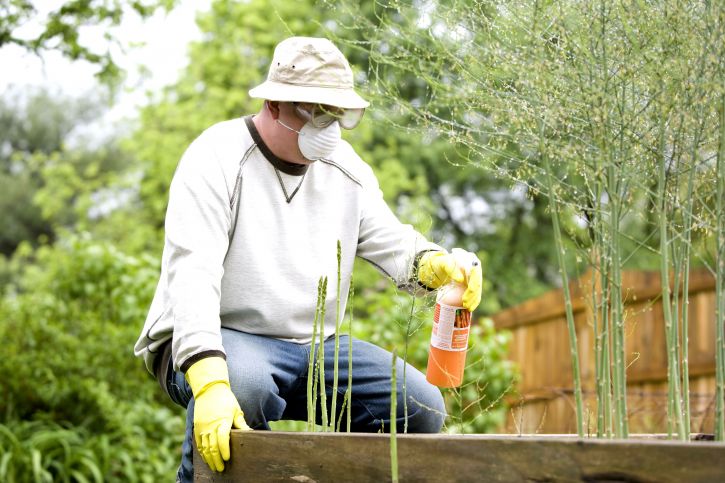Organic Pest Control for Container Gardens

Organic Pest Control for Container Gardens: A Greener Approach
Container Gardening: A Unique Challenge
Container gardening is a delightful way to bring nature into small spaces. However, it also presents unique challenges, especially when it comes to pest control. But fear not! Organic pest control methods for container gardens can keep your plants thriving without harming the environment.
Why Choose Organic Pest Control?
Organic gardening is not just a trend; it's a responsible choice. It keeps your plants, your environment, and even your pets safe from harmful chemicals. Plus, it's a fantastic way to ensure that your garden is eco-friendly.
Understanding Pests in Container Gardens
Before we dive into solutions, let's understand the problem. Pests love container gardens because they're often filled with nutrient-rich soil and tasty plants. Common culprits include aphids, spider mites, and whiteflies. But don't worry, they're no match for our organic arsenal.
Pest Prevention: The First Line of Defense
Prevention is key in organic pest control. Start with healthy soil and strong plants. Regularly inspect your plants for signs of pests. Keep your garden clean by removing dead leaves and weeds. And remember, overwatering can attract pests, so keep your watering in check.
Natural Pest Repellents: Your Garden's Best Friends
There are plenty of natural pest repellents that can keep critters at bay. Here are a few of my favorites:
Diatomaceous Earth: A Powerful Natural Insecticide
Diatomaceous earth is a fine powder made from the fossilized remains of tiny aquatic organisms. It's harmless to humans and pets but deadly to insects. Sprinkle it around your plants to create a protective barrier.
Neem Oil: A Versatile Pest Deterrent
Neem oil is extracted from the seeds of the neem tree. It's a powerful natural pesticide that disrupts the life cycle of many pests. Dilute it with water and spray it on your plants for a potent pest deterrent.
Companion Planting: A Clever Pest Control Strategy
Companion planting is a clever way to repel pests naturally. Certain plants, like marigolds and mint, have natural pest-repelling properties. Plant them alongside your other plants to keep pests away.
Beneficial Insects: Nature's Pest Control
Not all insects are pests. Some, like ladybugs and lacewings, are actually beneficial because they feed on other insects. Attract these helpful critters to your garden to keep pest populations under control.
Organic Pest Control Recipes
If you're feeling adventurous, you can even make your own organic pest control sprays. Here's a simple recipe to get you started:
Garlic and Pepper Spray
Blend six cloves of garlic and one hot pepper with a little water. Strain the mixture and add enough water to make one liter of spray. Let it sit for a day, then spray it on your plants. The strong scent will repel many pests.
Container Garden Care: Keeping Your Plants Healthy
Remember, healthy plants are better equipped to fend off pests. Regularly feed your plants with organic fertilizers, ensure they get enough sunlight, and water them appropriately.
Eco-Friendly Solutions: Beyond Pest Control
Organic pest control is just one part of eco-friendly gardening. Consider other practices like composting, water conservation, and using recycled materials for your containers.
When to Seek Professional Help
Sometimes, despite our best efforts, pests can still cause problems. If you're struggling with a pest infestation, don't hesitate to seek professional help. You can find plenty of resources and expert advice on websites like Gardeners.com.
Conclusion
Organic pest control methods for container gardens are not just effective; they're also safe and eco-friendly. By understanding pests, practicing prevention, and using natural repellents, you can keep your container garden thriving without harming the environment. So, what are you waiting for? Let's get gardening!
FAQs
What are some common pests in container gardens? Common pests include aphids, spider mites, whiteflies, and scale insects.
Can I use dish soap as a pest repellent? Yes, a mild dish soap solution can be an effective pest repellent. Just be sure to use a gentle, unscented soap.
How often should I inspect my plants for pests? Aim to inspect your plants at least once a week. Regular inspection can help catch pest problems early.
Are there any plants that naturally repel pests? Yes, many plants have natural pest-repelling properties. Some examples include marigolds, mint, and chives.
What should I do if I find pests on my plants? If you find pests, start by isolating the affected plant. Then, treat the problem with an appropriate organic pest control method. If the infestation is severe, consider seeking professional help.
0 Response to " Organic Pest Control for Container Gardens"
Post a Comment